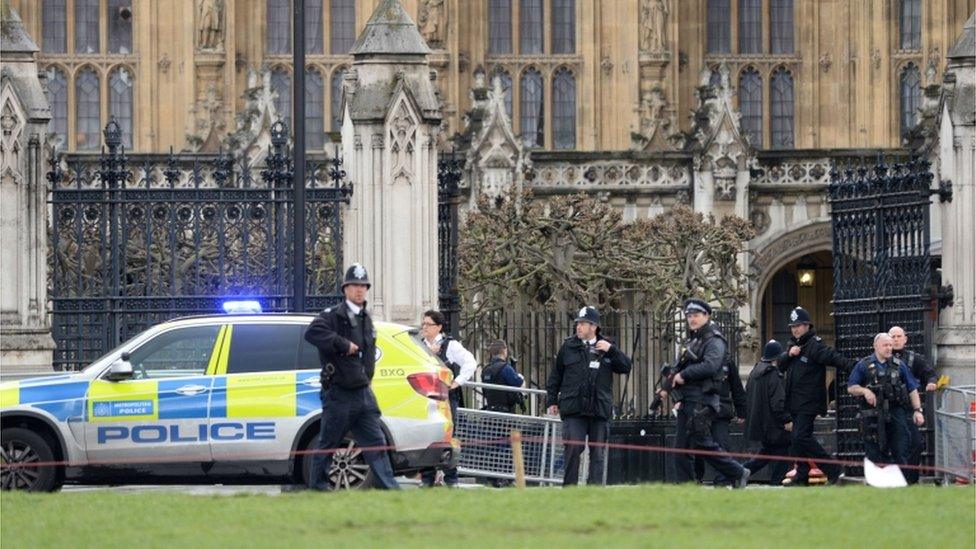Attack in Westminster: What happened?
- Published
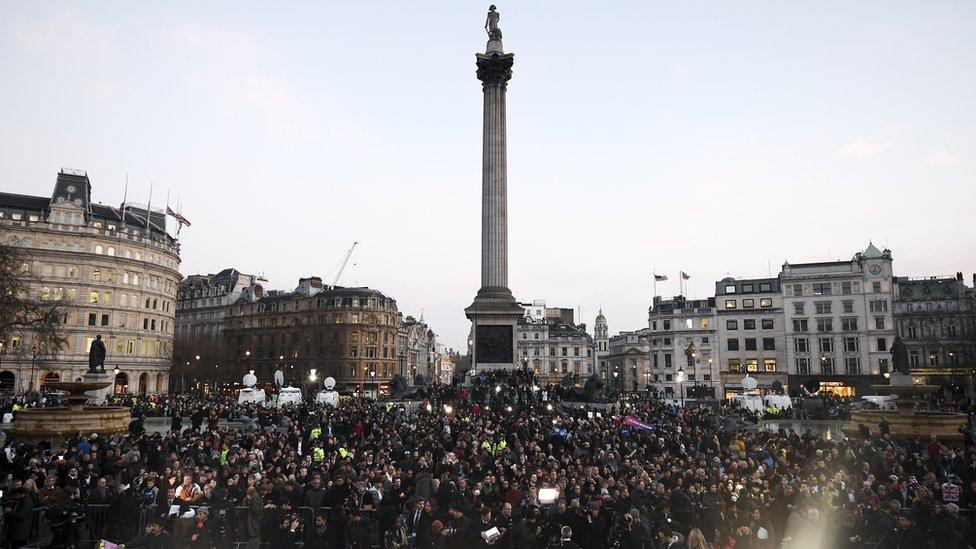
Many people gathered in Trafalgar Square on Thursday evening, near to where the attack took place, to remember those who had lost their lives
On Wednesday 22 March in the afternoon, there was a serious incident outside Parliament in London, which police have described as a terrorist attack.
Six people were killed, including the attacker who was shot dead by armed police.
On Thursday morning, the UK prime minister confirmed in parliament that the first arrests had been made in the relation to the incident, and the investigations are continuing.
Scotland Yard, who run the police in London, say the attacker was 52-year-old Khalid Masood.
They say they "believe that Masood acted alone on the day and there is no information or intelligence to suggest there are further attacks planned."
The head of counter terrorism at the Metropolitan Police, Mark Rowley, said: "It is still our belief that this attacker was inspired by international terrorism."
If you are upset by this story or anything that you see in the news, you can get help and advice here.
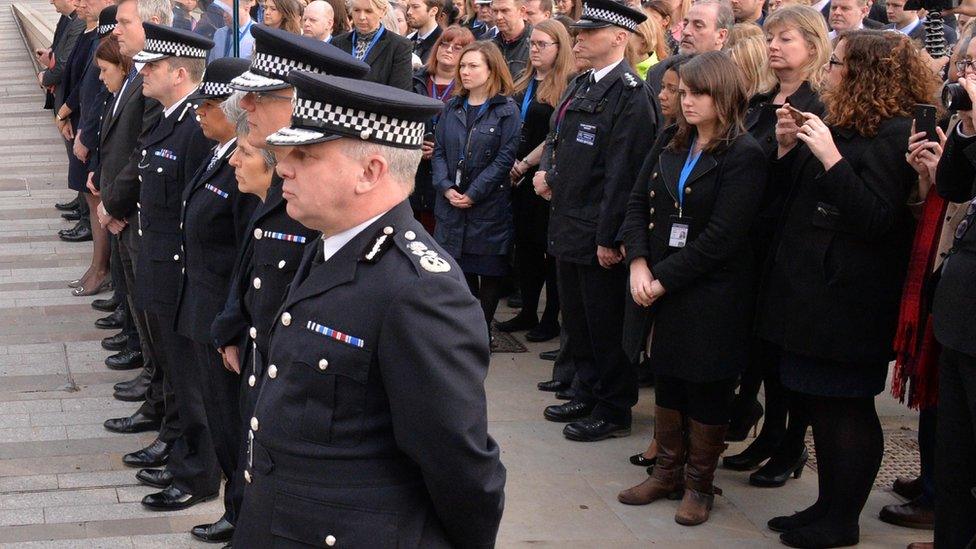
The morning after the attack, police officers and staff paused for a minute's silence outside the headquarters of the Metropolitan Police, to pay tribute to victims of the attack
The BBC's security correspondent Frank Gardner described what happened as the "most serious terrorist attack on London since the 7/7 bombings in 2005".
The following evening, there was a special gathering called a vigil, near to where the attack took place. People came together and lit candles to remember those who lost their lives.
Newsround's guide explains more about the events of that afternoon, who was involved and what happened afterwards.
What happened?
At around 2:40pm on Wednesday, a single attacker drove a car along Westminster Bridge and hit many pedestrians.
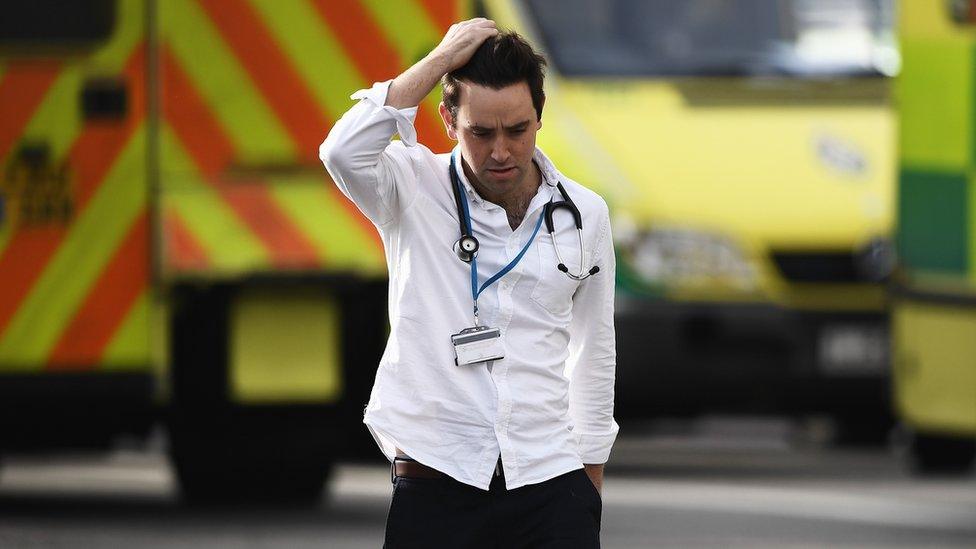
Many medical staff quickly arrived to help those who were injured
He then crashed the car into railings near the Houses of Parliament, before running towards Parliament where he attacked a police officer.
The attacker was then shot dead by armed police.
Who was involved?
Six people were killed in the incident, including the police officer and a woman who was hit by the car.
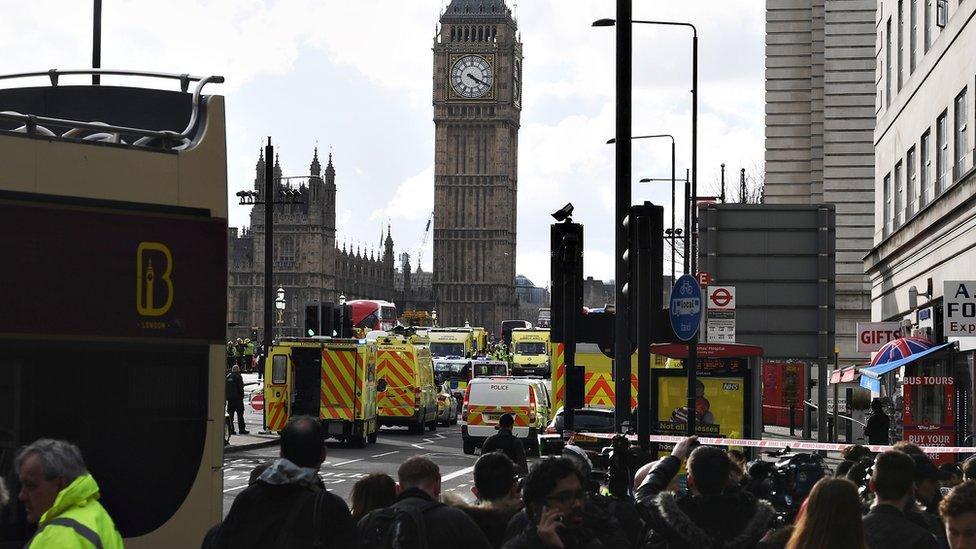
Emergency services were quickly at the scene to help people
The police officer was named as PC Keith Palmer, and the four other victims have been named as Kurt Cochran, Aysha Frade, Leslie Rhodes and Andreea Cristea.
Fifty people were also injured.
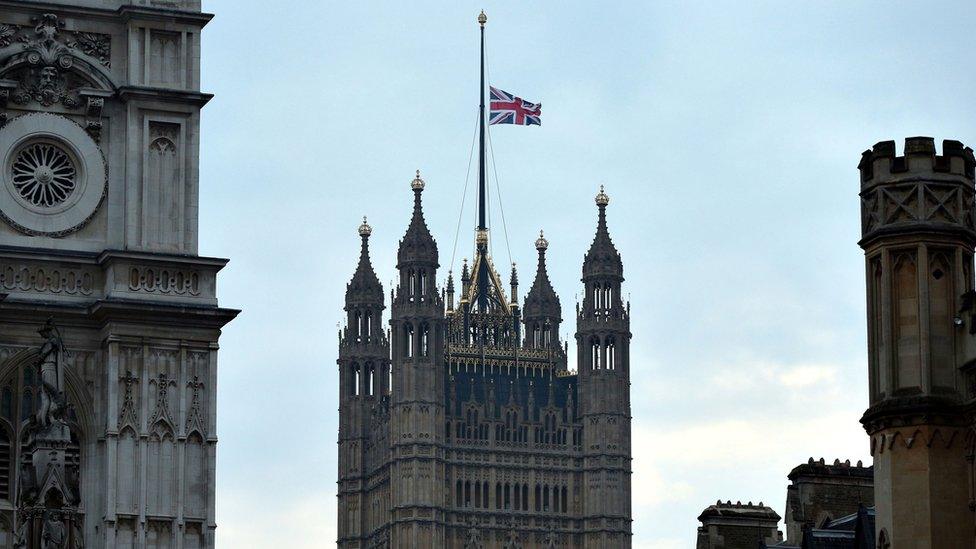
The morning after the attack, the flag above the Houses of Parliament in London was seen flying at half-mast, as a sign of respect for those who lost their lives in the attack
The extremist group who call themselves Islamic State - or IS - said that the man who carried out the attack was working for them. But this has not been confirmed by the authorities.
Guide: What is Islamic State?
Many people who were in the area when the attack took place were told to stay in their buildings to keep them safe. They were later allowed to go home.
Kids from London tell us how they feel about the Westminster attack
Hundreds of people were evacuated from Parliament and kept safe in Westminster Abbey.
What happens now?
The police are working hard to find out more about what happened.
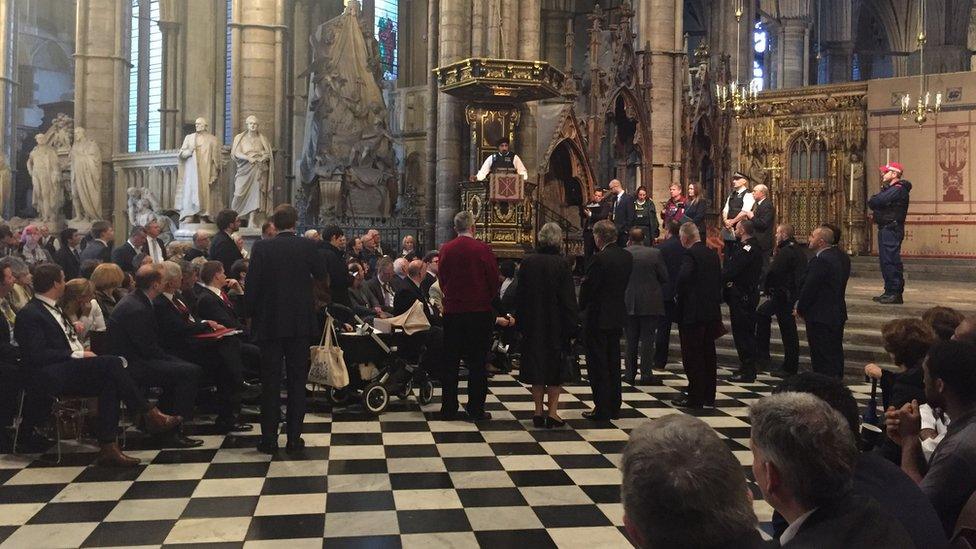
Here, a member of the police is speaking to the hundreds of people gathered in Westminster Abbey to keep safe
"Hundreds of detectives have been working through the night"
Mark Rowley, head of counter terrorism at the Metropolitan Police, said the morning after the attack
They have also said there will be more security on the streets, both in London and across the country, to make sure everyone stays safe.
The UK prime minister Theresa May said that the day after the attack, "Parliament will meet as normal, we will come together as normal, and Londoners and others from around the world who have come here to visit this great city will get up and go about their days as normal".
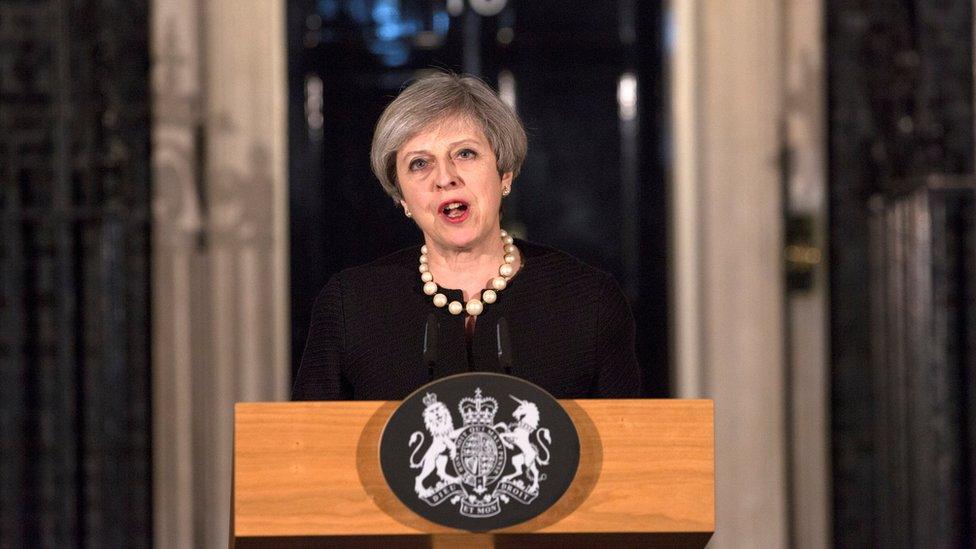
The prime minister has said that the day after the attack, people would go about their day as normal
"We will all move forward together," she said.
If you are upset by this story, click here for advice.
- Published23 March 2017
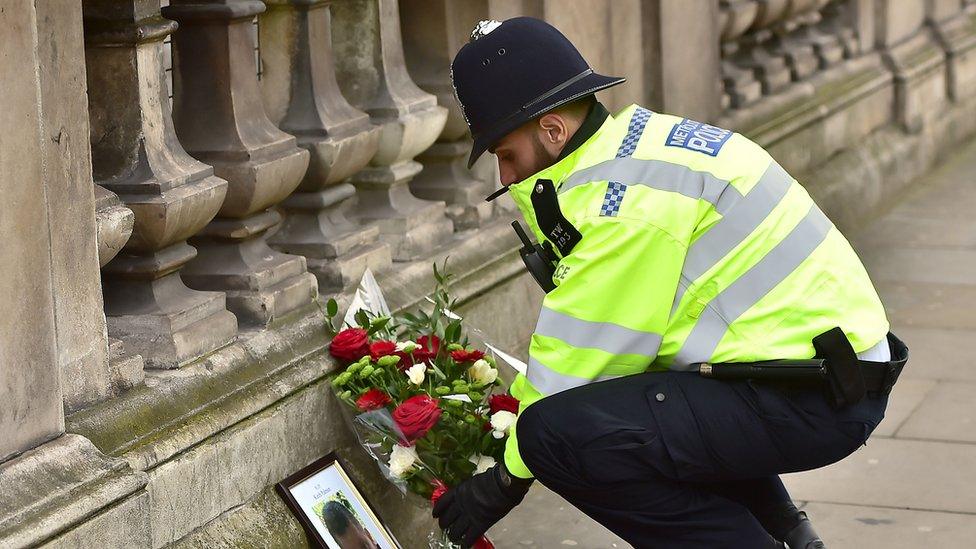
- Published22 March 2017
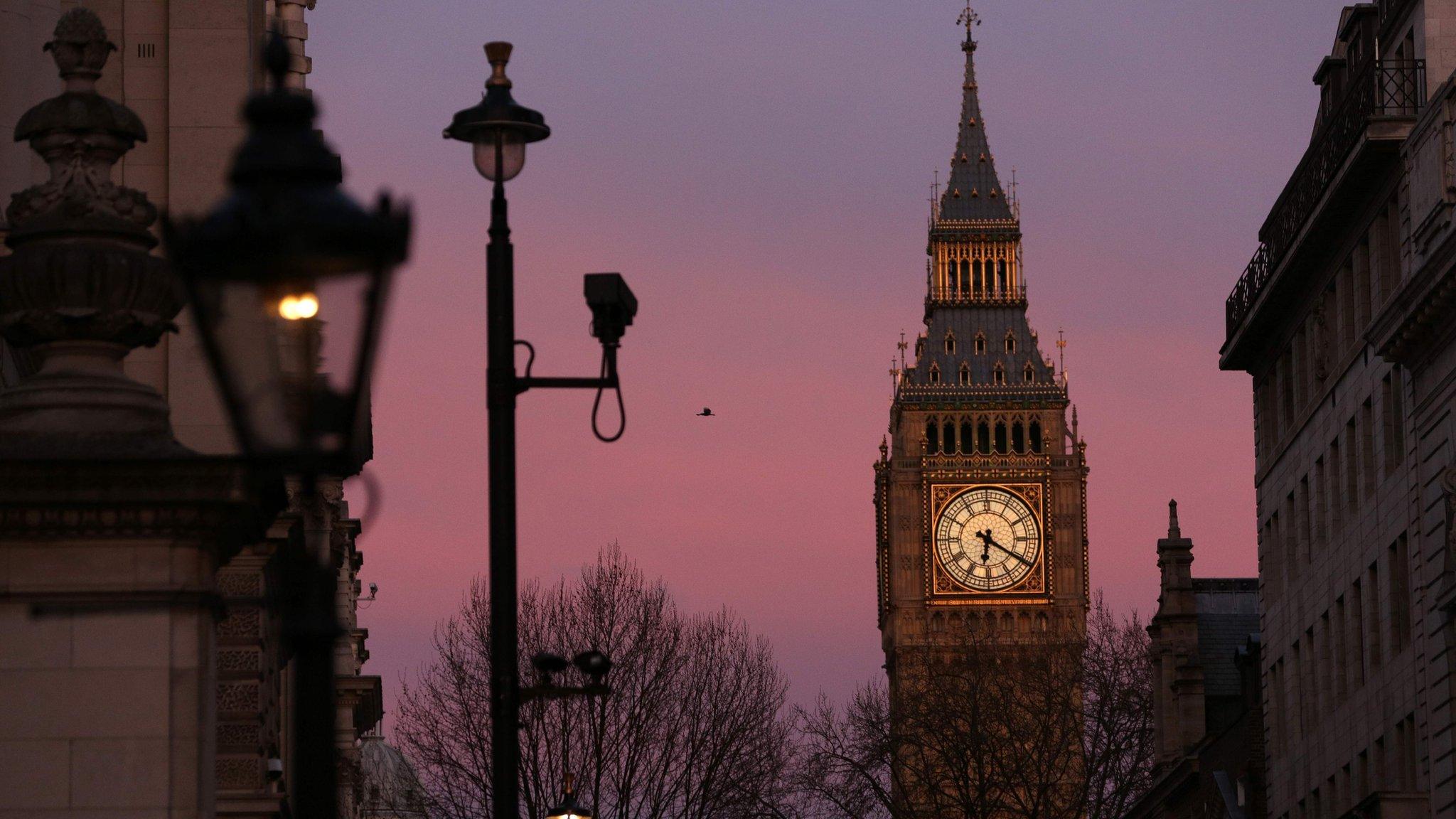
- Published23 March 2017
